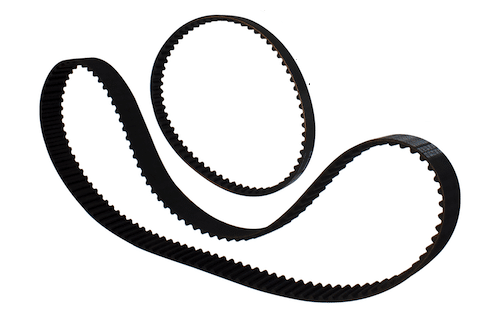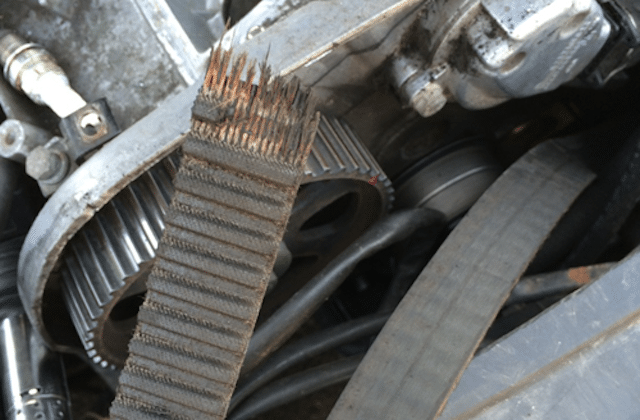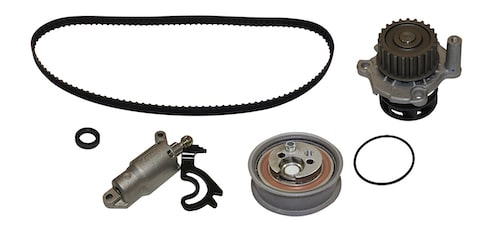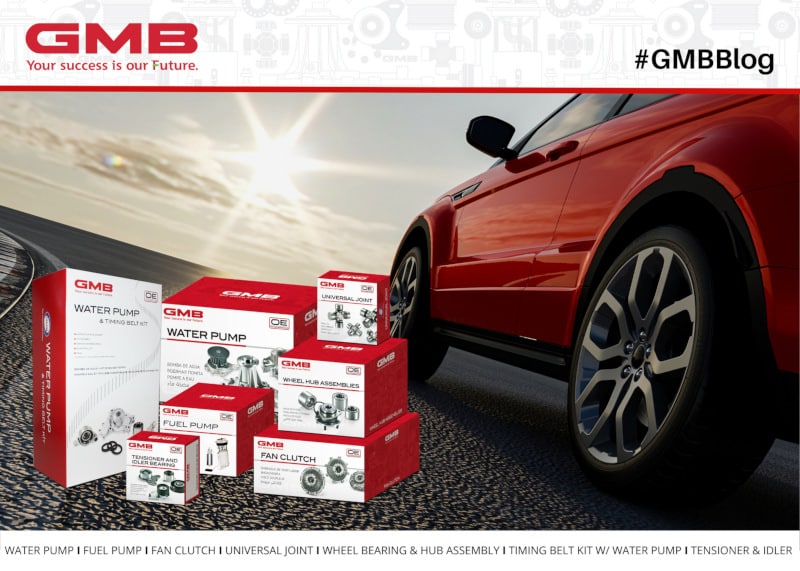Common Questions Consumers Have About Their Timing Belt
One of the most critical components of your vehicle is the timing belt. The timing belt is responsible for keeping the camshaft in “time” with the crankshaft. This ensures that the valves are opening and closing when they should. In many, but not all engines, the timing belt will also turn the water pump.
The timing belt is not the same as the serpentine belt, aka drive belt. The serpentine belt in your vehicle helps turn many accessories like the air conditioning compressor and alternator. The water pump is often replaced at the same time as the timing belt, because there is little extra labor needed to do both. If you want to replace your water pump, you should look through our selection here. Below, we will cover a few common questions about your timing belt.
Can My Timing Belt “Slip?”

A timing belt slipping is one of the most common ways a timing belt can fail. The timing belt in your vehicle uses specially designed rubber. Over time, this rubber will break down and eventually lose its “teeth”. When the teeth break off, the belt can slip. This can be terrible for your engine. It can cause the engine to hesitate or even stop running altogether. A slipped timing belt isn’t necessarily catastrophic, but it can still snowball into a much more expensive issue.
Why Does My Timing Belt Squeal/Make Noise?
If your timing belt is worn and old, it can start to squeal or squeak. This squealing often indicates a symptom of a failing timing belt. Look through this article if you think your timing belt may have experienced a failure. If you’ve recently replaced the timing belt, but not the belt tensioner (and possibly the idler pulley), the worn tensioner may be causing the problem. If the tensioner is worn, you should attend to this issue immediately to avoid further damage.
Why Is My Timing Belt Repeatedly Breaking?

Repeatedly breaking a timing belt is a very rare situation. It can be a symptom of a belt that is too tight. If you have snapped a relatively new timing belt, you should do more research on your specific vehicle and ensure you’re using the correct length timing belt. If you’re still facing timing belt issues, you should check out this article highlighting how you can increase the life of your timing belt.
Do I Have A Timing Belt Or Timing Chain?
For many years timing belts were used more often than timing chains in engines. More recently, the pendulum has begun to swing towards the timing chain. To know which type of timing your vehicle uses, you should research your specific model year and engine type.
Why Is My NEW Timing Belt Squeaking?
If you’ve recently had your timing belt replaced and it’s suddenly squeaking, this can be just as problematic as an old squealing belt. The typical cause is that the tensioner or idler were not replaced at the same time as the belt. If you’re concerned about a recent timing belt repair, read this article.
When Is My Timing Belt “Due” For A Change?

In recent years, manufacturers have continually developed their timing belt designs to ensure they last as long as possible. Most older cars needed a timing belt replacement every 50,000 miles, but more recently, timing belts can last up to 100,000 thousand miles or more. While many tend to lean on mileage to determine when to change a timing belt, you should note the belt is made of rubber. Even cars that are driven infrequently are subject to rubber breakdown. It is a good idea to replace your timing belt before it is five or six years old.
At GMB, we’ve been an industry leader in OE and aftermarket parts for over 70 years. We have locations on both US coasts and facilities all over the world. You can look through our products here, or you can contact us here.
MORE CONTENT
Stay current!
Sign up here to get the latest news
and updates on all things GMB.
Sign Up To Receive GMB News & Updates!

